nothing left for Slovenes other than to keep hands in pockets and search for employment all over Europe - world. In every major company located in Slovenia if and specially if in shareholders hands, human resource department hiring personnel consist of either chetniks imported straight from Serbia or UDBA vassals. Next to Serbian gangsters(not only UDBA departments or state hired assassins, professional mafia financed by Balkans state to smuggle anywhere from drugs and murder targets of Serbian state) Pahor and Kučan have little to fear as far as DEAD END for Slovenian future.
This is just drop in the sea - Russians oil alsoi is buying everything one can get ahold of in this tiny country.
Serbian investors have already invested 400 million euros in Slovenia was published in 2019 - 3 years ago Serbs are irresistibly buying Slovenian property
Serbs are irresistibly buying Slovenian property https://novice.svet24.si/clanek/novice/slovenija/5dd7da284be7b/srbi-nezadrzno-kupujejo-slovenijo-in-nase-premozenje Banks, hotels, the food industry ... The list of purchases made by Serbian businessmen in Slovenia is getting longer day by day, and it seems that there will be even more investments in the future.
Since independence, the flow of money between Slovenia and Serbia has been more or less one-way. Slovenians currently have over a billion euros in investments in Serbia. However, after the crisis that decimated the Slovenian economy, things changed and several Slovenian flagships ended up in the hands of Serbian entrepreneurs. Once the leading Slovenian IT company Hermes Softlab has landed in the hands of Serbian IT giant Comtrade, owned by Veselin Jevrosimović. Fructal was bought in 2011 by Nectar, owned by Slobodan Radun. Miodrag Kostić and his MK Group are leading the latest invasion of Slovenian companies. He bought Gorenjska banka, Portorož airport and the Grand Hotel Palace in Portorož, and finally a bunch of receivables from Slovenian companies owned by the former Hypo bank or its bad bank Heta. Among the major investments in Slovenia is certainly the only five-star hotel in Ljubljana, built by the company Delta Holding Miroslav Mišković etc. tra tra tra traaaa
The Russians are buying houses on the sunny side of the Alps
Although Russia is recovering from the longest recession in two decades, real estate buyers from the world’s largest country are still highly desirable to our sellers. For example, if you drive past Brdo near Kranj towards the motorway, you will notice an inscription in Russian on one of the large empty pieces of land overlooking the snow-capped peaks that the land is for sale. Although there have been few recent purchases worth several million euros, the Russians are still important clients of Slovenian real estate agencies.
They are attracted by Slovenian nature and tourism
Hotel Kanin, Rogaška hotels Strossmayer, Styria and Rogaška, Rimski vrelec na Ravne na Koroškem, Kranjskogorski Lek and also the popular Ljubljana hotel Cubo are supposed to be taken over by owners from Russia, according to some information. These are just some of the hotels that have ended up being owned by Russian investors in recent years.
Recently, the company Vera nepremičnine, founded in January this year, bought a building in Čopova ulica in Ljubljana from the American fund Pine River Capital, where the premises are rented by the H&M clothing store. The owner of the company is Tatjana Isajeva, a Russian woman from Novokubansk, completely unknown to the local public, and she deducted 7.5 million euros for the new acquisition in the Slovenian capital, according to Financ. As we learned unofficially, neither the sellers nor her representatives saw her with us before concluding the deal, and she also allegedly saw her new property only in photos. But according to what we have heard from our interlocutors, such buyers of real estate, even among wealthy Russians, have lately been the exception rather than the rule.
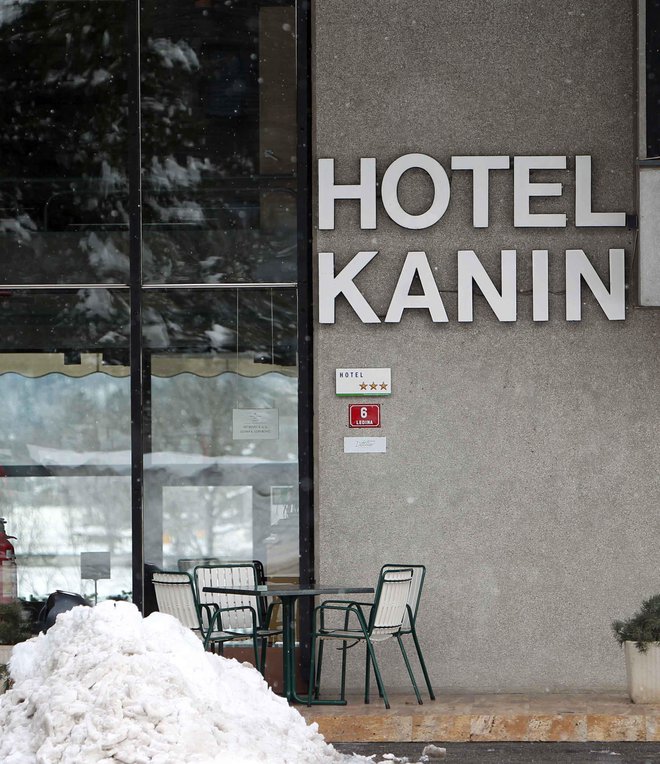
The customer profile is changing
Justin Young from the real estate agency Slovenia Estate, which does a lot of business with Russian buyers, notes that the profile of the Russian buyer of Slovenian real estate has changed fairly since 2012. Once upon a time, real estate investments in our country attracted especially richer Russians, so they were the most sought-after properties on the Coast. The more expensive it was, the more it attracted them. Most were not intended for the residence of the new owners, but they renovated them and then rented them out. Real estate sellers along the Adriatic coast in Croatia and Montenegro had similar experiences with Russian buyers, until oil prices plummeted and the ruble depreciated significantly.
The profile of the Russian buyer of Slovenian real estate has changed since 2012. In the past, purchases in Slovenia attracted especially the rich, now those with thinner wallets also buy.
"Russia's economy, which is heavily dependent on oil prices, has changed dramatically since then. If years ago we had more buyers who were looking for more luxurious real estate for holiday purposes or for rent, now it is dominated by those who immigrate to Slovenia for a better life, "says Young.
Purchases worth several million euros were replaced by purchases of new flats and houses, mostly in the amount of more than one hundred thousand to five hundred thousand euros. There have been fewer million-dollar transactions with Russian customers in recent years. "I can tell you from my own experience that at least half of the children at the international primary school are from Russia," he said.
The international department of the Danila Kumar primary school in Ljubljana confirmed to us that they have noticeably more Russian children than in previous years, but it is not true that there are half of them. According to their assurances, about a third of Russian-speaking children live in an international school where the official language is English.
Auctions are "in", but Russians are not attracted
Russians cannot buy real estate here as natural persons, but exclusively through their company. The agency therefore offers them the entire service, for the purchase of real estate Young and his colleagues set up a company in Slovenia for the buyer and carry out the entire transaction from start to finish. Although today's buyers of real estate coming from Russia are much less wealthy than they were years ago, they do not buy at auctions very often, they attend auctions of real estate from foreclosures or bankruptcies only a few times a year, as they are mostly interested in new houses and apartments. .
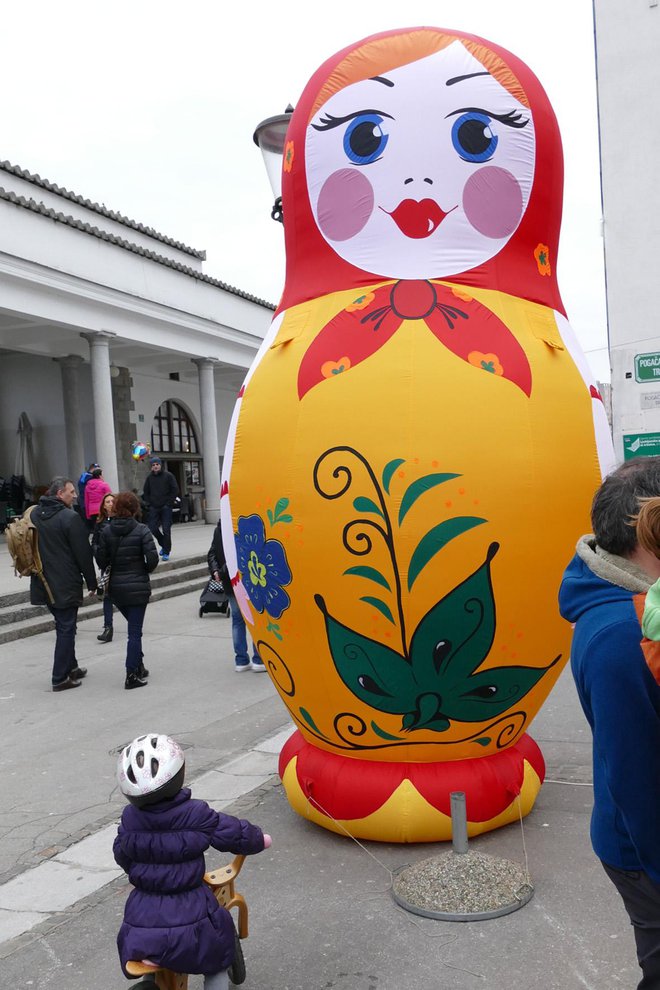
With the news that a buyer from Russia has bought a larger property, skeptics in Slovenia are quickly raising doubts about the origin of the money. However, the Financial Administration ensures that they regularly monitor all transactions related to real estate auctions, as well as other transactions that could be at risk due to undeclared income or assets. The Office for the Prevention of Money Laundering also plays a key role in this. Just as they check the origin of money with domestic buyers of real estate at auctions, they also check it with buyers from abroad, they say on Furs.
The Office for the Prevention of Money Laundering does not keep specific statistics on the basis of which it could be claimed that real estate was used in money laundering. In recent years, only three cases have been dealt with when the perpetrators bought real estate with illegally obtained funds and thus tried to launder money. Real estate has been detected in Russian transactions, but it is not necessarily money laundering. Namely, Russian citizens transferred funds to Slovenia or deposited them in cash in the accounts of Slovenian companies, whose partners were themselves, so that they could buy real estate through them.
The Office cooperates with all anti-money laundering offices in the world in monitoring such transactions. However, the quality, scope of the data received and the deadline within which they receive answers are not always at the desired level.
What attracts Russians to the sunny side of the Alps
Julija Mesarič, director of the first Russian school for children in Slovenia (Vesela dRuščina) and representative of immigrants in the government council for the integration of foreigners, says that Russians like a relaxed lifestyle, peace, clean nature, security and short distances in Europe. A Russian woman from Siberia, who has been married in Slovenia and has lived here for decades, notes that although in recent years not as rich Russian immigrants have come to us as before, there is virtually no one among them who does not have money for a decent life. The Aliens Act, however, puts all immigrants in the same basket, those who fled the war with all their belongings in one suitcase, and petites who have a successful business at home.
Wealthier and bigger businessmen are looking for opportunities for bigger business, but now they already know that we do not have big profits. Mesarič notes that immigrants coming to Slovenia in the last few years are mostly medium-sized entrepreneurs who move here with their families, buy an apartment or a small house. How does a Russian buyer, for example from distant Siberia, find out that a log cabin is being sold in Bohinj? The president of the Slovenia-Russia Association, Saša Geržina, explains that it is simple, the Russian community is very connected, Slovenia is small and everyone among Russians knows who to turn to for information or advice about it. How does he respond to hints that there is often money of dubious origin behind Russian purchases? "Both Russians and other buyers from outside the EU are under the scrutiny of anti-money laundering ombudsmen. Even for a Slovenian who buys a more expensive property,
The Russians and other former Soviets are good neighbors
Since the Russians own almost half of the hotels in the place, we asked the mayor of Rogaška Slatina, Branko Kidrič, for their opinion on what kind of owners and neighbors they are. Although at first glance it seems that one of the most important health resorts in our country is completely under the auspices of the Slavic big brothers, the owners of the hotels are Russians and most of the guests come from the east, Kidrič does not agree. "More than half of the hotel facilities in Rogaška are still owned by Slovenes. In addition, it is important to know that Rogaška is not only interesting for foreigners among Russians, there are also Ukrainians, Kazakhs and Azerbaijanis, all of whom are buying real estate from us, "says Kidrič.
The Office for the Prevention of Money Laundering cooperates with colleagues around the world in monitoring transactions, but the quality, scope of data received and the deadline for receiving responses are not always at the desired level.
His experience with Russian hotel investors is positive. For Kidrič, the readiness of Russian owners to invest in the renovation of hotels and joint investment in the renovation of the spa park and in the joint promotion of the place at eleven tourist fairs abroad is proof that Russians are good masters and good neighbors, all their companies are run by domestic managers native people.
“As mayor, I am particularly pleased that the Russians are also buying old, dilapidated houses and renovating them in accordance with local architectural guidelines. This improves the overall image of the place, not only the hotels are deprived, but the whole place. ”Kidrič adds that the entire municipal administration is aware of why the Russians are attracted to Rogaška Slatina; a peaceful and healthy environment, infrastructural and horticultural arrangement are just some of the factors, and the municipality is trying to move towards new investors in order to attract other compatriots to the place.
Slavic romance, not just profit
Roman Šipec is the director of SLKI, the owner of three hotels in Rogaška Slatina, which was founded at the end of 2014 by Russian citizens Ljudmila and Sergej Kacijev. In two years, the company has invested 1.5 million euros in the renovation and modernization of part of the hotel rooms and the renovation of the spa park, and in the next three years it plans to invest another eight million euros.
Years ago we had more buyers who were looking for more luxurious real estate for holiday purposes or for rent, now buyers who immigrate to Slovenia for a better life predominate.
"Hotel occupancy is at the planned level, for this year it is even slightly better than last year, as Russian guests are gradually returning," says Šipec. What kind of owners are Russians compared to other businessmen? "Of course, Russian businessmen are also for profit, there is no business without it. However, I have a feeling that there is more romance in their work, a kind of affection for the Slavic brothers. They feel well received here and the culture here is closer to them than any other in the west, which is evident, among other things, in the slightly more relaxed expectations regarding the profitability of investments. "
The bankrupt Aleksander Hotel in Rogaška, which is rented by a doctor from Russia, is also interesting for the Russian company run by Šipec. However, it is unofficial to hear that investors from Ukraine and some other countries of the former Soviet Union are still in line to buy.
Delo: Rusi kupujejo hiše na sonči strani Alp. Zakaj jih privlači Slovenija?
Ruski kupci so še vedno pomembni igralci na slovenskem trgu nepremičnin, a so časi milijonskih naložb v hotele in velike projekte bolj ali manj minili, poročajo pri časniku Delo, kjer so preverili, kaj danes najbolj mika ruske kupce nepremičnin v Sloveniji.
Kljub temu, da se Rusija zdaj šele pobira iz recesije, so kupci nepremičnin iz največje države na svetu še vedno zelo zaželeni pri slovenskih prodajalcih, kar je mogoče videti že ob vožnji po avtocesti mimo Brda pri Kranju, kjer na velikem praznem kosu zemljišča s pogledom na zasnežene gore vidimo napis o prodaji zemljišča v ruskem jeziku. Čeprav je v zadnjem času zelo malo nakupov v vrednosti več milijonov evrov, pa so Rusi še vedno pomembne stranke slovenskih nepremičninskih agencij, piše avtor prispevka v rubriki Svet kapitala.
»Mikata jih slovenska narava in turizem. Hotel Kanin, rogaški hoteli Strossmayer, Styria in Rogaška, Rimski vrelec na Ravnah na Koroškem, kranjskogorski Lek in tudi priljubljeni ljubljanski hotel Cubo naj bi po nekaterih informacijah prevzeli lastniki iz Rusije. Našteti so le nekateri od hotelov, ki so zadnja leta končali v lasti ruskih vlagateljev,« piše Delo. Med novejšimi primeri ruskih nakupov je denimo Tatjana Isajeva iz Novokubanska, ki je januarja letos, neuradno za 7,5 milijona evrov, odkupila stavbo na ljubljanski Čopovi ulici, kjer prostore najema trgovina z oblačili H&M. Pri tem gre za precej skrivnostno stranko, saj jo je komajda kdo sploh videl v živo.
Justin Young iz nepremičninske agencije Slovenia Estate poudarja, da se je profil ruskih kupcev po letu 2012 močno spremenil. Nekoč so veliko kupovali bogatejši Rusi, ki so drage nepremičnine pogosto zgolj prenavljali in prodajali naprej, podobno kot na Hrvaškem ali v Črni gori. Toda teh danes skoraj ni več. Po spremembah v ruskem gospodarstvu je sedaj vse več tudi manj premožnih Rusov, ki želijo trajno ostati v Sloveniji zaradi boljšega življenja, zato prevladujejo zlasti nakupi hiš in stanovanj v vrednosti od sto do petsto tisoč evrov, na dražbah pa jih vidimo le redko. Po informacijah Finančne uprave RS gre v veliki večini primerov za nesumljive kupce, ki so svoj denar zaslužili na legalen način.
Na mednarodnem oddelku ljubljanske OŠ Danile Kumar, kjer se otroci učijo v angleškem jeziku, so potrdili, da je tam okoli tretjina otrok rusko govorečih, kar pomeni, da ruskih družin v slovenski prestolnici zares ni tako malo. Direktorica zavoda Vesela dRuščina Julija Mesarič, ki prihaja iz Sibirije in je poročena v Sloveniji, je povedala, da Ruse Slovenija pritegne zaradi sproščenega načina življenja, miru, čiste narave, varnosti in majhnih razdalj sredi Evrope. Po njenih besedah ruski priseljenci v teh časih niso veliki bogataši, imajo pa denar za spodobno preživetje. Pogosto gre za srednje velike podjetnike, ki se k nam priselijo s svojo družino, je pojasnila. Predsednik Društva Slovenija-Rusija Saša Geržina je poudaril, da so Rusi v majhni Sloveniji precej povezani in si hitro izmenjujejo informacije, ki pridejo prav novim prišlekom, denimo o tem, kje najti primerno stanovanje.
Delo se je pogovarjalo tudi z županom Rogaške slatine, kjer je veliko turističnih zmogljivosti v lasti Rusov in drugih državljanov bivše Sovjetske zveze. Po njegovih besedah so Rusi in drugi državljani bivše ZSSR prijetni sosedje in dobri gospodarji, ki skrbijo za razvoj lokalnega turizma v okolju, ki je zanje privlačno zaradi mirnega in zdravega okolja ter urejene infrastrukture.
Če bi radi uporabili vsebino s spletne strani Russia Beyond (delno ali v celoti), pri svoji objavi dodajte zraven še povezavo na prispevek na naši strani.
Srbski investitorji so v Sloveniji vložili že 400 milijonov evrov was published in 2019 - 3 years ago
Srbi nezadržno kupujejo slovensko premoženje
Banke, hoteli, prehrambena industrija ... Seznam nakupov, ki jih v Sloveniji izvajajo srbski poslovneži, je iz dneva v dan daljši, in kot kaže, bo vlaganj v prihodnje še več. 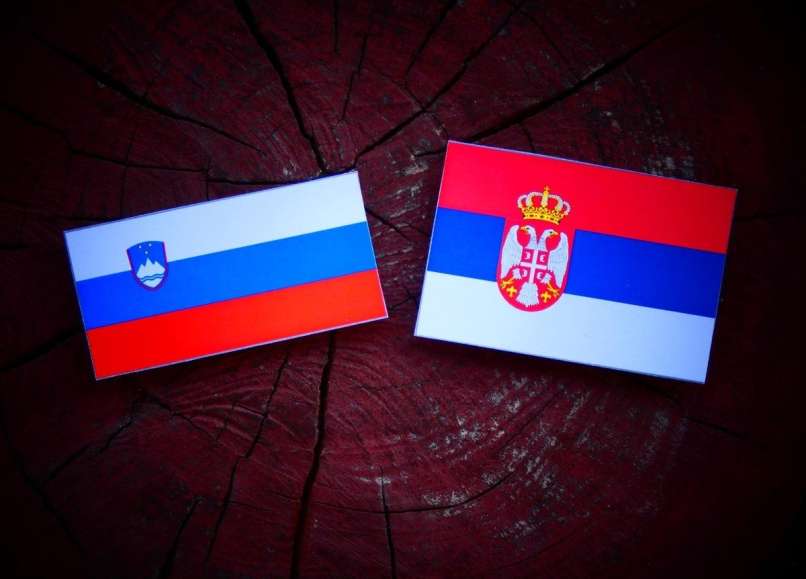
Od osamosvojitve dalje je vrsto let denarni tok med Slovenijo in Srbijo tekel bolj ali manj enosmerno. Slovenci imamo trenutno v Srbiji prek milijarde evrov investicij. Po krizi, ki je zdesetkala slovensko gospodarstvo, pa so se stvari spremenile in več slovenskih paradnih konjev je končalo v rokah srbskih podjetnikov. Nekoč vodilno slovensko IT-podjetje Hermes Softlab je pristalo v rokah srbskega IT-giganta Comtrade, ki je v lasti Veselina Jevrosimovića. Fructal je leta 2011 kupilo podjetje Nectar, katerega lastnik je podjetnik Slobodan Radun. Zadnjo invazijo na slovenska podjetja vodi Miodrag Kostić s svojim MK Group. Kupil je Gorenjsko banko, Portoroško letališče in Grand Hotel Palace v Portorožu ter na koncu še kup terjatev do slovenskih podjetij, ki so bile v lasti nekdanje Hypo banke oziroma njene slabe banke Heta. Med večje investicije v Sloveniji gotovo spada tudi edini hotel s petimi zvezdicami v Ljubljani, ki ga je zgradila družba Delta Holding Miroslava Miškovića
Posodobljeno: 09:19 / 23.11.2019
Banke, hoteli, prehrambena industrija ... Seznam nakupov, ki jih v Sloveniji izvajajo srbski poslovneži, je iz dneva v dan daljši, in kot kaže, bo vlaganj v prihodnje še več.
Srbski investitorji so v Sloveniji vložili že 400 milijonov evrov. 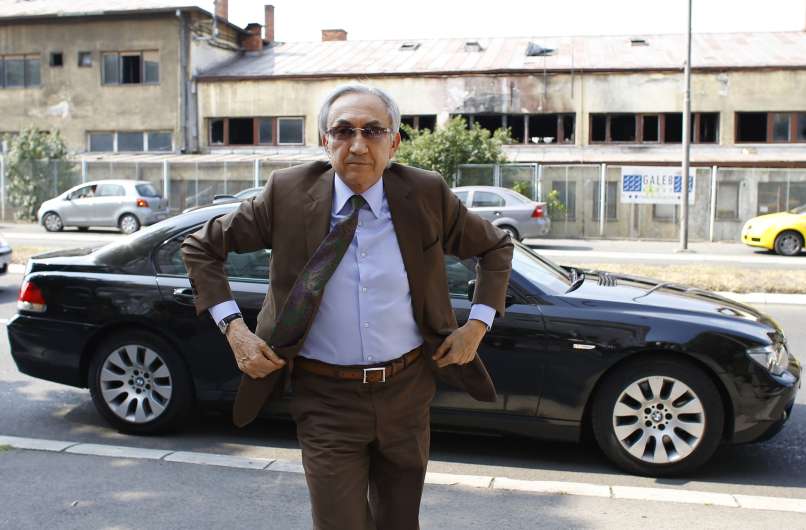
Delta Holding Miroslava Miškovića je zgradila največji hotel v Ljubljani.
Spremenjena razmerja
Kot je pred kratkim v enem od intervjujev povedal Nikola Papak, direktor predstavništva Gospodarske zbornice Srbije v Sloveniji, je vrednost naložb v Sloveniji že presegla 400 milijonov evrov. Dejal je, da se je Srbija spremenila iz nekdanje surovinske baze za zahodne države nekdanje Jugoslavije v pomembnega regijskega investitorja. »Z naše perspektive je pomembno, da smo uspeli uravnotežiti blagovno menjavo s Slovenijo oziroma da ima v letu 2018 in letos Srbija celo presežek pri menjavi. Srbski izvoz v Slovenijo kontinuirano raste tudi po zaslugi slovenskih podjetij. Skupna blagovna menjava v letu 2018 pa je znašala kar 1,6 milijarde evrov,« je še poudaril Papak. 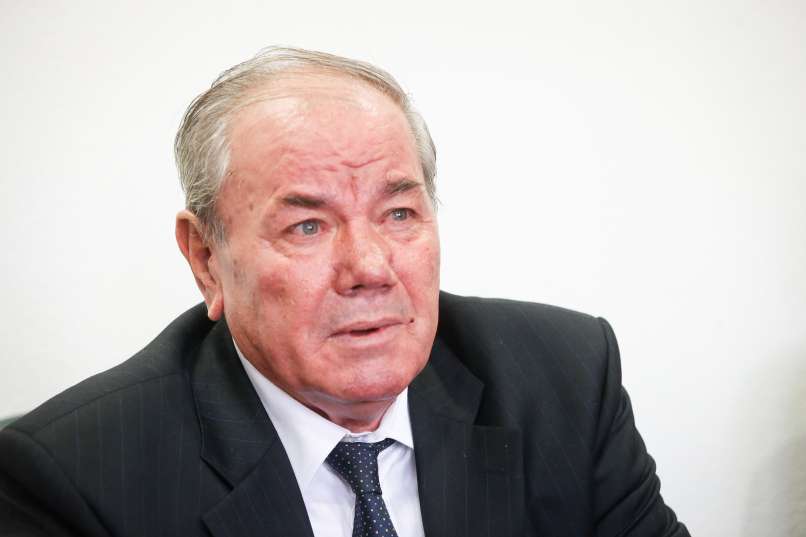
Slobodan Radun je kupil Fructal.
Kaj v Srbiji iščejo Slovenci
V Slovenijo izvažajo predvsem podjetja iz prehrambene industrije, pohištvene industrije, pa tudi iz IT-panoge in proizvodnje plastičnih izdelkov. Ob tem v srbski gospodarski zbornici izpostavljajo tudi sporazum med državama, ki je sprostil prehod delovne sile iz Srbije v Slovenijo. Na drugi strani so slovenska podjetja v Srbijo vložila okoli milijarde evrov, v nekdanji skupi republiki pa je kar 1600 podjetij z večinskim slovenskim kapitalom. Če je za srbske vlagatelje Slovenija odskočna deska za trge Evropske unije, pa Slovenci prek Srbije iščejo priložnosti za vstop na ruski in turški trg. Poleg tega se Slovenci za vlaganja v Srbijo po mnenju Nikole Papka odločajo predvsem zaradi kakovostnejše in cenejše delovne sile, velikih vlaganj v infrastrukturo ter ugodnega davčnega okolja. 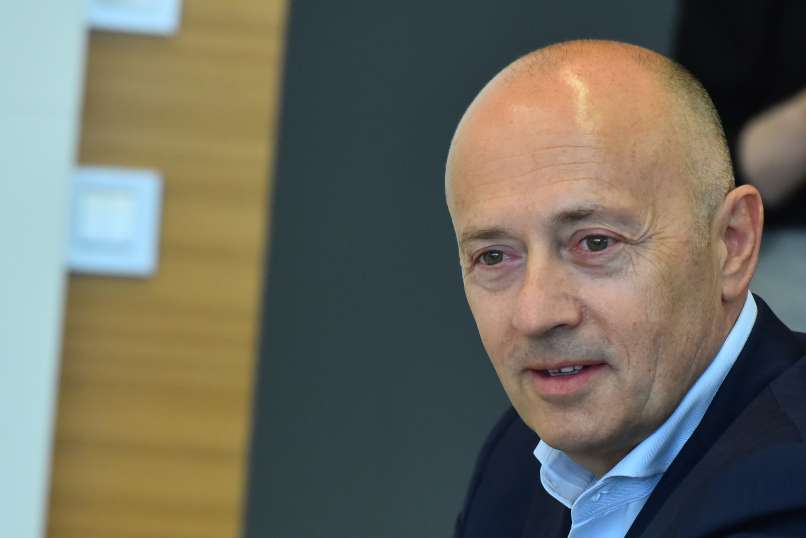
Miodrag Kostić je v zadnjih letih največji investitor iz Srbije.
Serbia's MK Group to invest 6.5 mln euro in overhaul of luxury hotel in Slovenia
 Author: Hotel Kempinski Palace Portoroz. License: All rights reserved.
Author: Hotel Kempinski Palace Portoroz. License: All rights reserved. LJUBLJANA (Slovenia), February 22 (SeeNews) - Serbian diversified conglomerate MK Group plans to invest 6.5 million euro ($7.4 million) in the renovation of its Kempinski Palace Portoroz hotel in Slovenia, it said.
MK Group will invest 3.5 million euro in the renovation of the modern part of the hotel until late spring this year, while a further 3 million euro will be invested in the renovation of the Palace part of the hotel in the next two years, the holding said in a statement on Monday.
"Renovation is directed to the areas in which we received comments from the guests in the past and are tailor-made to improve the guest satisfaction and hotel quality even further and consequently provide higher revenue for the hotel," Kempinski Palace Portoroz general manager Kai Behrens said.
MK Group will completely redesign all 78 rooms and suites in the modern part of the hotel, focusing on a minimalistic modern look, while emphasis will be placed on room inventory and IT infrastructure, Wi-Fi development and conference centre adaptation.
The Serbian group acquired Kempinski Palace Portoroz in 2015 from Slovenian conglomerate Istrabenz. The hotel is located in a building constructed by Austrian architect Johannes Eustachio in 1910.

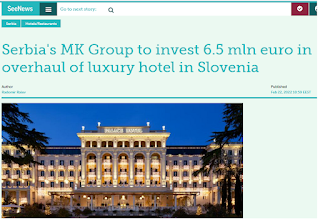

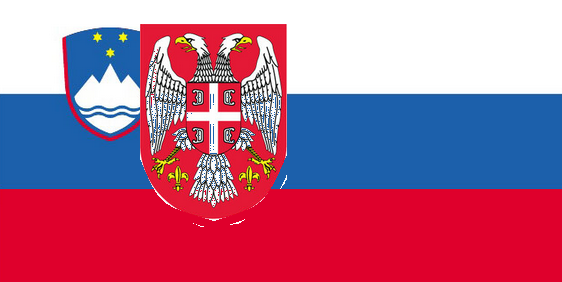


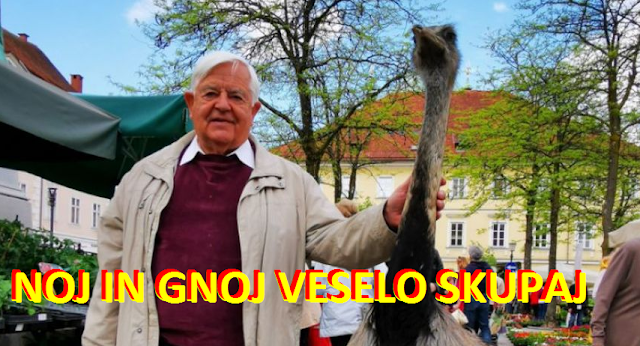
No comments:
Post a Comment